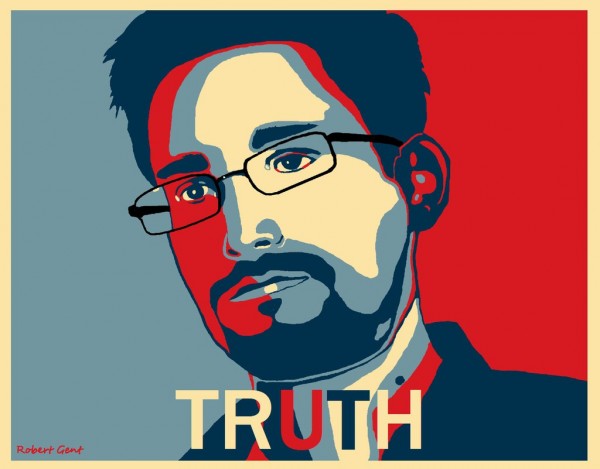THE ATLANTIC: A panel President Obama convened to assess the National Security Agency in the wake of Edward Snowden’s leaks has issued a 308-page report with this message: To protect privacy, civil liberties, and security, the NSA ought to be reformed. […] Some of the most significant reforms suggested:
- The government’s storage of bulk metadata is a risk to personal privacy and civil liberty, and as a general rule, “the government should
not be permitted to collect and store mass, undigested, non-public personal information about US persons.” Following this recommendation would end the Section 215 collection of telephone-call records as now practiced. - The conversations Americans have with people overseas should have more protection.
- There should be new limits on the ability of FISA courts or National Security Letters to compel third parties to turn over private business records.
- Telephone companies and Internet providers should be able to reveal general information about the amount of data that the government is requesting.
- Regular people in foreign countries should enjoy at least some protections against unconstrained NSA surveillance.
- The NSA should not intentionally weaken encryption or exploit security flaws in commercial software that have not yet been made public.
- The director of the NSA and the head of the U.S. military’s cyber command should not be the same person.
- The secret court that grants FISA requests should be an adversarial proceeding, not one in which the government gets to make its arguments unopposed. […]
A review convened by the executive branch has now called for significant reforms to virtually every program made public by the Snowden leaks. If a government employee or contractor leaks classified information to the press, and the result is a judicial finding that the government has violated the Fourth Amendment, multiple pieces of bipartisan reform legislation circulating Congress, and a review for the president that suggests reforms to multiple secret programs, what do you call the leak? I call it whistleblowing. MORE
POLITICO: But the big changes the committee is calling for may be less vexing for Obama than one painful, half-buried conclusion: Vacuuming up all that data the National Security Agency collects in its call-tracking database, the panel says, hasn’t actually done much to protect the country from terrorism. And so the panel’s report raises a pointed question: if collecting huge volumes of metadata on telephone calls from, to and within the United States doesn’t bring much benefit, just how much political capital is Obama willing to spend to keep the program going? MORE
PREVIOUSLY: ’ Federal Judge Rules NSA’s Mass Surveillance Of Americans Unconstitutional, ‘Almost-Orwellian’

